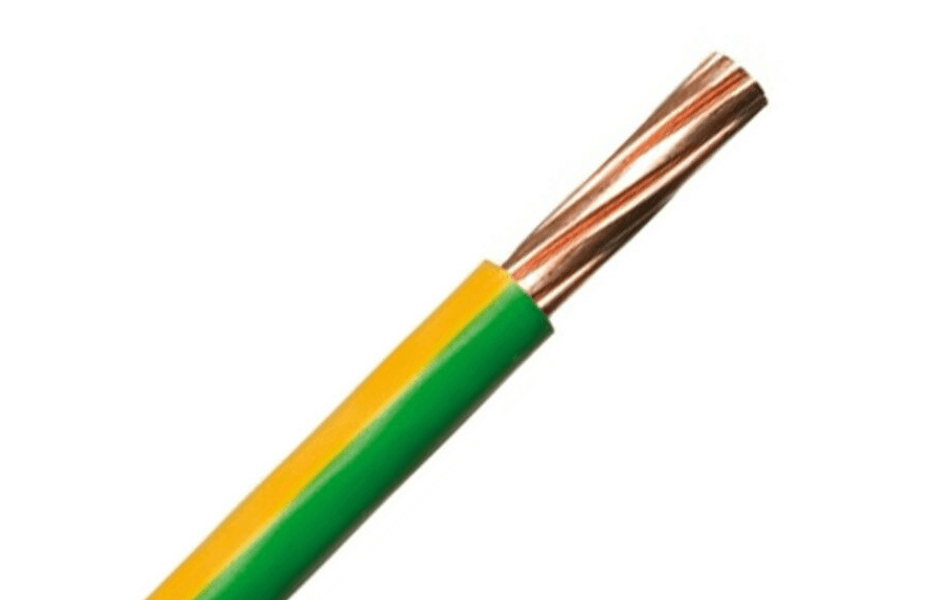Cable earthing is an essential part of electrical systems that ensures safety and reliability. Without proper earthing, the risk of electrocution, electrical fires, and damage to equipment increases significantly. As such, it's important to understand the importance of cable earthing and the measures that need to be taken to ensure its effective implementation.
The Pain Points of Cable Earthing
While cable earthing is crucial, many people overlook its importance, which can lead to devastating consequences. The lack of proper earthing can cause electrical currents to flow through the ground, creating a dangerous hazard for people and animals. Faulty wiring and electrical equipment can also result in damage to property, leading to expensive repairs.
Answering the Target of Cable Earthing
The primary target of cable earthing is to provide a safe path for electrical currents to flow to the ground in case of a fault. When a fault occurs, the earthing system redirects electrical energy to earth, preventing injury or damage to equipment. Additionally, proper earthing improves the performance and efficiency of electrical systems by reducing electrical interference and noise.
Summary of Key Points
In summary, cable earthing is necessary for the safety and reliability of electrical systems. It provides a safe path for electrical energy to flow to the ground in case of a fault, reduces electrical interference and noise, and improves the performance and efficiency of electrical systems.
The Target of Cable Earthing
Electrical systems rely on cables to transmit power and signals between devices. The cables themselves can become a source of danger when they are not properly earthed. Cable earthing involves connecting a cable to the earth, typically by means of a conductor, in order to dissipate any electrical energy that may accumulate on the cable.
During my time as an electrician, I have seen firsthand the consequences of faulty cable earthing. For instance, I remember a job we had where the client's equipment kept malfunctioning randomly. Upon further investigation, we discovered that it was due to a poor earthing connection. After fixing the earthing connection, the equipment operated perfectly.
The Importance of Grounding and Its Effect on Cable Earthing
Grounding is a critical aspect of proper cable earthing. It involves connecting the electrical system to the ground, which provides a path for electrical energy to flow in case of a fault. Grounding also helps to protect against voltage surges and other types of electrical interference that may damage equipment or cause injury.
When grounding is not implemented correctly, it can result in a range of problems such as electrical shock, equipment malfunctions, and fires. It's essential to ensure that all electrical systems are correctly grounded to prevent these issues from occurring.
The Long-term Implications of Poor Cable Earthing
The long-term implications of poor cable earthing can be severe. For instance, electrical fires can result in significant damage to property and even loss of life. Equipment malfunctions due to faulty earthing can also be expensive to repair or replace. In addition, electrocution can lead to serious injury or death, making proper cable earthing crucial to the safety of people working in the vicinity of electrical systems.
Cable Earthing FAQs
Q: How frequently should cable earthing systems be inspected?
A: Cable earthing systems should be inspected annually, or more frequently if there have been any significant changes to the electrical system or if there have been any incidents that could have affected the earthing system.
Q: Can I install cable earthing myself?
A: While it is possible to install cable earthing systems yourself, it's generally best to leave the job to a qualified electrician who has the necessary training and experience to ensure that the system is installed correctly and complies with safety regulations.
Q: What are the consequences of not properly earthing a cable?
A: The consequences of not properly earthing a cable include electrical fires, equipment malfunctions, damage to property, and injury or death due to electrocution.
Q: What is the difference between earthing and grounding?
A: Earthing is the process of connecting a cable to earth to dissipate any electrical charge that may accumulate on the cable. Grounding involves connecting the entire electrical system to the ground, typically through a grounding wire or rod.
Conclusion: The Importance of Cable Earthing
In conclusion, cable earthing is a critical aspect of electrical systems that ensures safety and reliability. Proper implementation of cable earthing can prevent injury, damage to equipment, and even save lives. As such, it's essential to prioritize cable earthing as part of any electrical installation or maintenance process.
Gallery
Copper Earthing Cable At Rs 35/meter | Jeedimetla | Secunderabad| ID

Photo Credit by: bing.com / cable earthing copper cables wires indiamart conductor
101 Electrical Engineering Interview Topics: Grounding / Earthing

Photo Credit by: bing.com / earthing cable grounding electrical topics engineering interview typical
Earthing Cable, Packaging Type: Roll, Rs 5/meter Neskeb Cables Private

Photo Credit by: bing.com / earthing cable wire cables core single wires packaging roll type copper indiamart
35mm Earth Cable

Photo Credit by: bing.com / cable earth 35mm color green copper pvc
Electrical Earthing - Definition, Types, Advantages & Disadvantages

Photo Credit by: bing.com / earthing cable earth wire copper electrical house type flexible types sq mm components pvc electric cables insulating packaging roll material